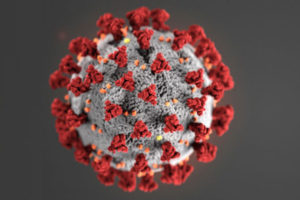COVID-19 pushes more than 500 million Africans below poverty line
 The full impact of the COVID-19 pandemic is yet to be realized, but some 514 million Africans are already falling below the poverty line.
The full impact of the COVID-19 pandemic is yet to be realized, but some 514 million Africans are already falling below the poverty line.
According to the Economic Commission for Africa (ECA) Africa Sustainable Development Report, the implementations of the SDGs and Agenda 2063 faced several challenges before the outbreak of the COVID19 pandemic.
The report indicates that before the pandemic, income disparities were on the rise across the continent; and while extreme poverty had almost vanished in North Africa, more than 50 per cent of the population in Central Africa lived below the extreme poverty line. About nine out of 10 extremely poor people in the world currently live in Africa.
The ECA warns that COVID-19 will push an additional five to 29 million below the extreme poverty line, if the impact of the pandemic is not limited by 2021.
An additional 59 million people could suffer the same fate, which would bring the total number of extremely poor Africans to 514 million people, it added.
These were made known at the ongoing Seventh Session of the Africa Regional Forum on Sustainable Development (ARFSD), which is being held virtually from March 1 to 4, 2021.
The ECA states that additionally, Africa continues to experience disparities in universal access to energy, electricity and even clean fuels and technologies for cooking.
African countries have also being noted to have made progress towards the emission reduction target and have managed to increase the proportion of key biodiversity areas by 4.5 per cent between 2010 and 2020, the continent has remained vulnerable to climate change with limited response capability. In addition, Africa has lost an average of 3.9 million hectares of forest per year between 2010 and 2020 due to population growth, poverty and agricultural expansion, it said.
Faced with these difficulties, ECA experts have suggested several strategies to speed up the African recovery such as: Establishing and strengthening of social protection systems for sustainable poverty reduction, and investment in key enablers such as reproductive health, mental health, access to primary health care and education; Improved environment through sustainable extraction policies and use of natural resources; Investing in modern and digital technologies to increase productivity and encourage innovation; Adopting a people-centered approach when addressing issues related to governance, peace and security; In order to finance these efforts, the ECA experts recommended the use of a coordinated multilateral approach to debt relief, debt restructuring and development financing as well as domestic resource mobilization.
Impact of COVID-19 on health and well-being
Health experts discussing the state of good health and well-being in Africa, spoke about the ripples of the COVID-19 pandemic that are being felt in the health sector, raising questions about how to deal with the challenges it has added to the existing difficulties of the health system in Africa.
According the experts the impacts of the pandemic have shown that African countries would have to start building climate resilient health systems to meet the challenges of the future
In her contribution, Dr. Matshidiso Moeti, WHO Regional Director for Africa, noted that the pandemic has seriously curtailed health delivery on the continent, because lockdowns and closure of borders, affected the movement of goods and services which had impacts on delivery of healthcare products and services.
Dr. Humphrey Karamagi of the WHO Regional Office for Africa, gave an overview of the SDG3 which is to ensure healthy lives and promote well-being for all at all ages.
He said the impact of the pandemic on health is being felt as there is a disruption of other services which will affect not only health, but the well-being of populations.
The impact, he said also affected the healthcare workforce, as practitioners got infected with the virus, creating a situation of insufficient healthcare work force.
The long closure of schools, he said, will have a long-term effect on health, even though, the pandemic, has led to an improvement in personal hygiene as people now frequently wash their hands.
As the pandemic has exposed the inequalities in health access, and access to information, it is time to move toward universal health care, apply inter-sectoral approaches and build climate resilient health systems, he stated.
“We must start thinking of climate resilient health systems,” he said.
Dr Maha El Rabbat, Special Envoy of the WHO Director-General on COVID-19, noting that while progress has been made on the health front, that progress has been affected by the outbreak of COVID-19. The most vulnerable have been affected and the pandemic has added to already existing challenges of health systems such as disparities and inequalities.
“These challenges, have underscored the fragility and availability of health services, and no one is safe, until everyone is safe,” she said.
According to Dr. El Rabbat, African countries need to tackle inequalities, and must have a new vision to be able to build better in the future.
In her contribution, Julitta Onabanjo of the UNFPA indicating that the COVID-19 has put a spotlight on primary healthcare and emergency services, bringing to the fore the readiness and functionality of the healthcare system, called for accelerated universal access to comprehensive reproductive health services for women.
Panel members agreed that there is need for African countries to drive towards integration, resilience and build a fit for purpose health system.
